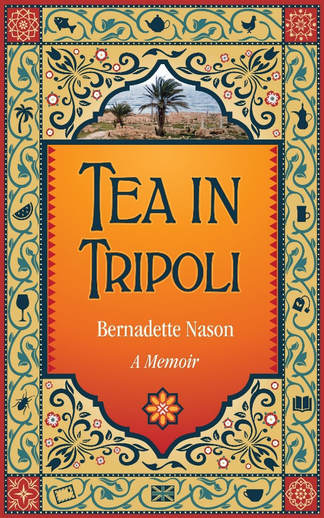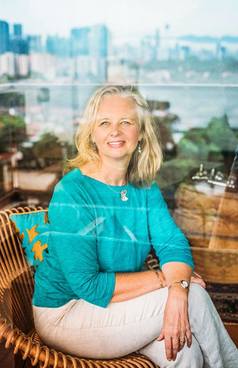|
A Me-Treat is a treat designed just for you... indulge your senses, inspire your soul, nourish your body and stretch your writing muscles as you get under the skin of the place you are in and explore your creative potential. Me-Treats are designed and led by author, journalist, poet and mentor, Jo Parfitt. Day places are now available for Jo Parfitt's writing Me-Treats in Penang, Malaysia and the The Hague, Netherlands. Book one or more days with the option of dining with your fellow Me-Treaters. Spend time in the company of other like-minded people. Days begin and end with words. Mornings are for inspired learning; a time to immerse yourself in the best your location has to offer and be mindful of the everyday. Afternoons are for following your flow, relaxing and completing a piece of writing. You see, at six o'clock it's time for the highlight of a Me-Treat – reading, sharing and connecting over a drink or two as we give feedback on the day's creations. Then it's time for dinner, with wine and more meaningful conversation.
Berni: It's actually 33 years! When I first returned to the UK from Libya, I found it difficult to speak about my time there. England was so "normal" and Tripoli so "different" that my stories seemed ludicrously farfetched. When I did share an anecdote, my hometown friends thought I was exaggerating or even making stuff up. The only people I could talk to were other expats who'd lived there. We'd meet every so often for just that purpose, and they said the same thing: that they'd started to doubt their own memories because no one took them seriously. I remember a dinner party of my mother's, where I was asked to chat about Libyan life, and I immediately recalled the time a gun was pointed at me, and knew right away that I couldn't share that story; my mother would've had kittens! I never told her that one, nor others of a similar nature. There was also, in the background, a general anxiety about Gaddafi. It sounds odd, but I was always scared that tales I told would somehow endanger expats still living there. It took a while before a few of the stories began to shape in such a way that their telling would be acceptable to my friends and family. Eventually, those conversational stories formed into the one-woman show, and from there, into the book. Jo: What made you believe it needed to be written?  Berni: First—it sounds corny—but the book sort of insisted that it be written; it forced its way into the world, like a long overdue baby. Then I couldn’t find a memoir that matched my own experiences; there wasn’t anything like it in the marketplace. More importantly, from the moment I began sharing snippets about this naïve nervous secretary, running away from her problems and ending up in a strange land, people showed interest. Whether it was, "I know someone who did that," or "I did that," or "I wish I'd done that," or "You're nuts!", there was a reaction. I knew for sure I had an audience after presenting Tea in Tripoli (the show). Having chosen stories I thought would entertain, and others demonstrating expatriate life in a mostly unfamiliar (at least, in the US) area, I received an overwhelming positive response. Many asked if the stories were from a book, and if not, when I planned to write it. Until then, I hadn't seriously considered a book. But when I outlined it, and saw there was a clear arc, even along the basic timeline, everything fell into place. The more I wrote, the more I realized my experiences might actually entertain, might encourage others to step outside their comfort zone, could inspire them to share their stories, maybe even comfort folk who'd been through what I'd been through by proving they weren't alone. Jo: You are an actress and an author. Which came first? Berni: The show came first, and I think I've explained why. I'll add that I've been an actress and storyteller for so long that writing individual short pieces for performance is what came most easily to me. Building on those short pieces, and learning how to develop and shape them into a book, is how I became an author. Jo: You write so vividly about the 1980s. You retain your youthful outlook, the fun, the naivety and have placed it expertly in the mind of a young, free and single-again, woman. How on earth did you achieve this? Berni: a! I'd like to say that I'm still fun and naïve with a youthful outlook, though some may disagree! And although I can rarely remember where I've left my phone, I have an absurdly detailed long-term memory. Having said that, Tea in Tripoli (the book) is supported by my diary (which I kept up, for better or worse, while I was there), photo albums (every picture tells a story, as you know) and hundreds of letters. As I state in the book, I spent a lot of time writing letters, describing pretty much everything I saw, thought and felt about what was happening around me. Family and friends wrote back in kind. These provided accounts of 1980s life, both in Libya and the UK. As an actress, I could also put myself in the mind and body of a twenty-seven-year-old woman, adrift in a foreign culture with only a myriad of personal issues and a need to reinvent herself to justify her existence. Jo: How did you remember it in so much detail? I’d have thought that you only selected valuable stories and missed lots out. Am I right? Berni: As mentioned, much of the detail comes from correspondence, journal entries, photos, and my own robust recollection. Frankly, I didn't realize how many tales I had to tell until I'd finished. When the selection had reached majestic (read, oversize) proportions, my editor helped cull what didn't serve, and once I'd determined which stories to keep, I developed them as best I could. There were areas where I had to dig deep, and while I may have credited lines to the wrong person here and there, I strove to be accurate. Jo: Tell me about your writing process. How did you plan the writing and how long did it take to write in total?  Berni: hear writers say they spend 3-4 hours a day writing, and I hope one day to say the same, with revenue coming in from sales and book-related work. Until then, storytelling and acting pay my bills and absorb much of my time. Thankfully, Tea in Tripoli (the show) fell into the storytelling/acting category, so, back in 2011, I devoted six months (on and off) to writing it, plus a month's rehearsal with a director/dramaturg. I began committed work on the book in the summer of 2013, still working as storyteller/actress but spending every other moment writing, sometimes 3-4 hours a day, sometimes 9-10 hours. In 2014, I had a strong first draft, which I had professionally edited for content and structure. One year later, I believed the manuscript ready. After professional proofreading and line editing, I sent it to beta readers and five prospective agents in the summer of 2015. Although feedback was unanimously positive, none of the agents took it, and while their reasons were sound, something didn't feel right so I went "back to the drawing board". I completely restructured the work, which took another year. In 2016, it returned to my editor for further comments. After working through her final edits, changing what I agreed with, leaving what I didn't, it was proofread again. I had the final, finished product in my hands by September 2016. Thus, Tea in Tripoli: A Memoir took just over three years, not including the initial work on the solo show. It's possible I worked 3-4 hours a day, all told! Jo: Tell me about your publishing process, including any rejections along the way. Please keep it real for our readers, sharing how the book made it from proposal to bookshelf? Berni: I was drawn to indie publishing from the start. I liked the idea of having creative control of my artwork, layout design, and content. I already had a fan base from my acting/storytelling world, and several platforms from which to market. I tend to be disciplined and deadline driven. If my self-published book was as high-quality as I intended, I felt it might also be a launching pad to a traditional career. As self-publishing still bears a stigma, and with author friends recommending the traditional route, I did send query letters to five agents, all of whom requested and declined the manuscript (as mentioned). When a sixth agent showed interest, she said she'd want to edit, and told me my publishers may well edit too, adding that it could take three years from finding a publisher to seeing my book on the shelf. At this point, I decided to go it alone. I have great confidence in my book, and honestly believe I'd have found an agent and publisher eventually, but I simply wanted to take control. After three years of preparation, and three years of writing, the thought of waiting another three years didn't thrill me. Thus, I studied every aspect of indie publishing, and checked out many different companies, ending up with CreateSpace because of its affordability and track record. Please note: if you want a self-published book that looks as if it's been traditionally published, it's going to cost you. Be prepared! However, after a very short time, I'm already halfway to paying back my costs. Jo: The print book came out first, the Kindle version later. Why was that? Berni: On Amazon, it looks as if the print book was available to the public on May 5, 2017, but that's not so. May 5 is actually the date the ISBN# was approved on CreateSpace, and I had no idea that my site would register that date as the launch date. The book was not purchasable on Amazon in either Kindle or print until August 21, 2017. However, in May, I ordered advance copies for the purpose of early reviews. I also needed boxes of books for advance promotional parties, and for the formal launch party at the Austin Playhouse on Sunday, August 20, 2017, the day before the official Amazon launch. All of this is standard procedure for indie authors, and helps promote the book in advance as any traditional publisher would do. Jo: How are you marketing the book? What seems to be working for you and what is less successful? Berni: Like many writers, although I'm quite confident, I tend to be more introvert than extrovert; I've had to work on that since I chose to be an actress! The fact that I'm a storyteller, happy to perform bits from the book, rather than read from it, is an advantage. Marketing an indie published book is seriously hard labour because you're on your own, but a lot of what I'm doing is precisely what traditional publishers expect from their authors. My methods may not work for everyone, but here's how I'm going about it: I present at bookstores, especially if they're prepared to keep copies on consignment. I attend house parties hosted by others, who invite their friends. The host provides an audience and refreshments. In return, they get a presentation, Q&A, book signing, and kudos. The author sells books, gets email addresses to market future events, and makes new friends (who might even host parties). I also present at libraries, book festivals, storytelling festivals, fringe festivals, arts' festivals, retirement communities, book clubs, and anywhere that readers gather. I ask for reviews on Amazon and Goodreads—one must be prepared to ask, patiently, sometimes twice… people are busy. I'm now writing to national publications for reviews. I give radio, magazine, and newspaper interviews; I haven't got around to TV yet. I've been sending out a bi-monthly newsletter on MailChimp using my email list. I'm trying to keep my website up-to-date, and to write a regular blog—tough to maintain with so much else going on. Bloggers have stepped up (thank you, Jo!) to write about TEA IN TRIPOLI on their sites, but I'm also looking for others to interview me and/or give a review. It's cool to offer the same in return. And ticking away in the background, there's always social media: Facebook, Twitter, Instagram, etc. The trickiest part for me is the schmoozing—I much prefer to be at home writing, cup of tea on one side, lazy cat on the other—but as I've said, I'm a work in progress. Jo: What’s next? Berni: For the next few months, I'll be balancing storyteller/actor with salesperson, and trying to carve out that elusive 3-4 hours a day to write. I recently found a 25-year-old letter in which I said, "There aren't enough hours in a day to do all the things I want to do!" and that still applies. Readers who've enjoyed TEA IN TRIPOLI are asking for DINNER IN DUBAI, the follow-up, and it's in progress. But I'm leaning towards a seasonal compilation, STEALING BABY JESUS, about dysfunctional Christmases around the world, which was well-received on stage a few years ago, and may be more timely as we approach December. Truly, as one never knows what life is going to offer, I'm flexible and open to change! TEA IN TRIPOLI is available (paperback and Kindle) at Amazon
ISBN 9780998784809 US Price: $17.95 + tax (price varies according to country) Published: Brave Bear & Company on August 21, 2017 |
�
All the latest news from the team at Summertime Publishing
As an Amazon Associate, we may earn a commission from qualifying purchases. This does not affect the price you pay or your consumer rights.
Archives
June 2024
|



